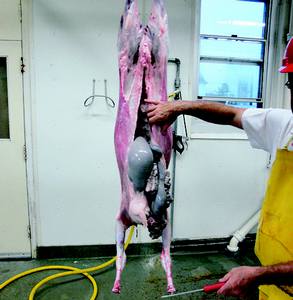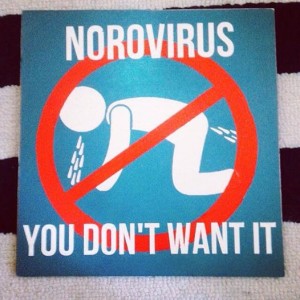Agriculture Secretary Tom Vilsack today announced the appointment of members to the National Advisory Committee on Meat and Poultry Inspection (NACMPI) for the 2014-2016 term.
 Established in 1971, the 17-member NACMPI meets on food safety concerns and advises the Secretary of Agriculture on matters affecting federal and state inspection program activities. It also contributes to USDA’s regulatory policy development.
Established in 1971, the 17-member NACMPI meets on food safety concerns and advises the Secretary of Agriculture on matters affecting federal and state inspection program activities. It also contributes to USDA’s regulatory policy development.
“The diverse perspectives on food safety that the advisory members bring are invaluable to our success in ensuring the safety of the foods we eat,” said Vilsack. “I am firmly committed to aggressively decreasing the incidence of foodborne illnesses and these outstanding individuals will be instrumental in our work to protect the American people’s food supply.”
The new NACMPI members are: Dr. Michael Crupain, Consumer Product Safety and Sustainability; George Wilson, Wilson & Associates, LLC; Dr. Tanya Roberts, Center for Foodborne Illness Research and Prevention; Kurt Brandt, United Food and Commercial Workers International Union; Dr. Dustin Oedekoven, South Dakota Animal Industry Board; Dr. Krzysztof Mazurczak, Illinois Department of Agriculture; Michael Frances Link Jr., Ohio Department of Agriculture; Dr. Manpreet Singh, Purdue University; Dr. Randall K. Phebus, Kansas State University (right, pretty much as shown); Dr. Patricia Curtis, Auburn University; Brian Sapp, White Oak Pastures, Inc.; Sherri Jenkins, JBS, USA, LLC; Dr. Betsy Booren, American Meat Institute; Dr. Alice Johnson, Butterball, LLC.
Returning members are: Sherika Harvey, Mississippi Department of Agriculture; Dr. Carol L. Lorenzen, University of Missouri; Dr. Michael L. Rybolt, Hillshire Brands Company; Dr. John A. Marcy, University of Arkansas; and Christopher A. Waldrop, Consumer Federation of America.
NACMPI will host its next public meetings Jan. 13-14, 2015 from 9 a.m.to 5 p.m. each day, in the first floor auditorium of the Patriot Plaza III building, located at 355 E St., SW; Washington, D.C. 20024. Registration, which is open to the public, begins on site at 8:30 a.m. each day. Additional details and the meeting agenda are accessible at the NACMPI website: www.fsis.usda.gov/wps/portal/fsis/topics/regulations/advisory-committees/nacmpi.
 The handling of the Yersinia pseudotuberculosis issue by the Ministry for Primary Industries beat the closure of regional flight routes by Air New Zealand and Roger Sutton’s resignation by the State Services Commission to make the top of the list.
The handling of the Yersinia pseudotuberculosis issue by the Ministry for Primary Industries beat the closure of regional flight routes by Air New Zealand and Roger Sutton’s resignation by the State Services Commission to make the top of the list.










